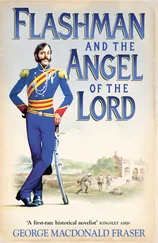Lucy Brown (the mother) had arrived in England from Jamaica on the day Jackson fell from a ladder. Lucy (the daughter) was born in Notting Hill Gate. Her birth coincided with the death of Indian Lucy in India after which Khublall had come to Europe with his shaven head. It was all recorded in Mary’s automatic writing and Angel Inn mirror’s wealth of a-causal coincidence enfolding series of “absences” and “presences” through which to read a conception of the family of Mack the Knife.
Lucy Brown had had a difficult time as an unmarried mother bringing up the child. She had met Jackson comparatively recently, scarcely more than four years ago, by chance, when he was returning home from his portering duties in a large hotel. They were sheltering from the rain in the wide doorway of the Odeon Cinema close to his workplace and he had casually asked her, on hearing her accent, whether she was interested in having some old furniture he had decided to get rid of.
It was what she wanted and she jumped at the opportunity, and that was how she first came to visit him in North Pole Road. Spartan as his flat was, it needed cleaning at times and she cleaned kitchen, bath, sitting room, etc., everything except the garden at the back in which the cat roamed and killed the occasional bird or mouse.
It was a curious friendship since Jackson was of middle-class Jamaican origins (he no longer possessed a bean of his father’s money) and she was of peasant stock from the hills and had retained traces of her accent and a modified pattern of West Indian speech.
She grew to trust him implicitly and he found himself by degrees linked to her by wry comedy, exasperated spirit, yet ominous and serious understanding.
“Oh Mr Jackson,” she said, “I been promising myself to bring Lucy to see you these past four year. She need counsel. The girl headstrong. She won’t listen to me….”
On the surface it seemed a familiar enough story to Jackson, the gulf between the generations. “You look well, Lucy,” Jackson said, trying to make light of her woebegone countenance. “I mean your dress,” he added soberly. “It’s new, isn’t it?”
Lucy was wearing a full dress that disguised and suited her large figure. “I not feeling as bright as I look, sir. And if I collapse on the road and got to be taken to hospital…” She lifted her dress almost unconsciously to reveal a snow-white, spotless petticoat. “They say I would win a prize for the best-dressed tea-lady in London.” Her voice rumbled into a laugh.
Jackson smiled. Lucy, the daughter, stared into space. It was astonishing how swiftly the older woman’s mood could change from sad to bright like flickering shadows in Angel Inn mirror.
“You know, Mr Jackson,” she confessed, “there’s nobody else in the world I talk to like you. You know my private feeling.” She turned to her daughter. “I don’t mean by that what you thinking Lucy. All you young people is a hard generation….”
“Platonic,” said young Lucy, “how good.” Her accent was Notting Hill Gate, flat-earth English, sharp, sceptical, it stung a little, but Jackson felt oddly stimulated. Her mother ignored her except that her demeanour changed again within chameleon bite of blood. “I frighten one day of dropping down on the road, sir. All them prying eye, prying hand, undressing, dressing me.”
“What does it matter?” Jackson said. “You won’t know a thing.” He turned to hard-edged, slightly enigmatic daughter for support but she looked away swiftly to stare into space. Why had she bothered to come, he wondered. What could he say to please her?
“ It matter ,”said the older woman. “I would know, my hair would breathe, when strange hand touch me. Nowadays nobody care. People shooting each other in Jamaica. Call an election and bullet fly. Killing, wanting to kill, wanting to be killed, wanting to fight in the street, is immodest …” She stopped.
Immodest! The word struck him. He had never thought of it like that. What did she mean? He stared into the woman’s eyes and caught the drift of half-sealed, half-unsealed consciousness as her fictional death, fictional disrobing, overshadowed the room. She was obsessed, he saw, by the thought that a dead person could come immodestly alive in the “boudoir of the coffin, the boudoir of politics”.
What an outrageous notion! Yet it glanced through his mind as a true conception of dressed urban angst and peasant black humour. It drew him down into the grave of the streets, the self-advertised killed around the globe upon Marsden’s towering stick converted now into Lucy Brown’s height of fear, her heightened fear of violence, the theatrical deaths that one saw on television, the tall dead celebrated by fanatics, the extensions of immodest naked action, immodest prosecution of feud, unconscious strip-tease, immodest wishfulfilment, hunger-fasts, hate-fasts.
Young Lucy now got up from her chair and made her way over to the vase of flowers. Her mother’s eyes and Jackson’s eyes followed her across the room. “I wish she would marry a good man, not a freedom fighter, god knows what unfreedom he fighting for like in a nightmare; a good man with a bit of money in the bank, Mr Jackson. Can’t you talk to she? ”
It was the kind of half-rude, half-rhetorical question for which the West Indian peasant was famous. By “talk” Lucy Brown meant the magical power to bind to one’s will, to make someone do one’s bidding. That “talk” was equated with “good or bad persuasion” arose from an unconscious conviction that words were a sacred or daemonic medium since their roots were mysteriously cast in the rhythm of things, the implicit voice in every object one uses, implicit trance, utterance of binding contour in every feared object, respected object. Yet fear, Jackson wanted to say but could not, could also breed silence — the fear that’s close to ambiguous love — the fear of nemesis that helps to unravel temptation to seduce others or to be seduced by others.
“Three year pass,” Lucy Brown said, “since the motorcycle accident in 1978. Three anniversary. First anniversary ’79 Sebastian Holiday lose his job.”
Jackson did not know that Sebastian Holiday was hollow relation to his lost “daughter of Man” and assumed the tea-lady was referring to someone at her workplace.
“Second anniversary ’80 the recession bite deep and a lot of redundancy follow. Third anniversary ’81 Lucy Brixton boyfriend in trouble. Can’t you talk to her, Mr Jackson?”
“A day’s just a day for me,” said young Lucy coldly. “No talk will change that.” She turned around a little from the vase of flowers. “And anyway you do enough talking for everybody and your anniversary’s early this year, isn’t it, mother? This is April not June.”
“What motorcycle accident?” said Jackson, turning away for a moment from young Lucy’s hard-edged, disturbing beauty of limb and breast.
“It was a white boyfriend Lucy had. He die on the road in ’78.”
The young woman moved away slowly from the flowers, crossed the room and fondled the cat. Jackson’s eyes were unobtrusively glued to her. It was suddenly clear to him that there was an element of dream in the way she walked however sceptical or cold she seemed. On the surface her body was a wall between herself and eclipsed antecedents. Through Mary’s automatic codes however that clothed the room and propelled her pencil across the page of a mirror, Jackson perceived depths of characterization, hypnotic expedition.
His eyes seemed to open. Something came back to him like a blow of silence. A file of black women walking through the hills of Jamaica. He was a boy at the time in a car on his way with his father across the island. The women were dressed in white. They carried covered trays of food and other materials on their head. There was a statuesque deliberation to each movement they made, a hard-edged beauty akin to young Lucy’s that seemed to bind their limbs into the soil even as it lifted them very subtly an inch or two into space.
Читать дальше












